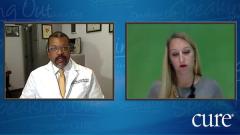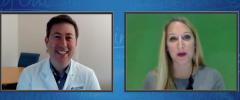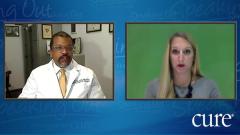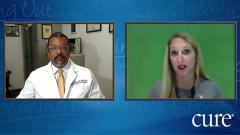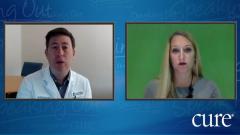
Addressing Disparities in Lung Cancer Screening
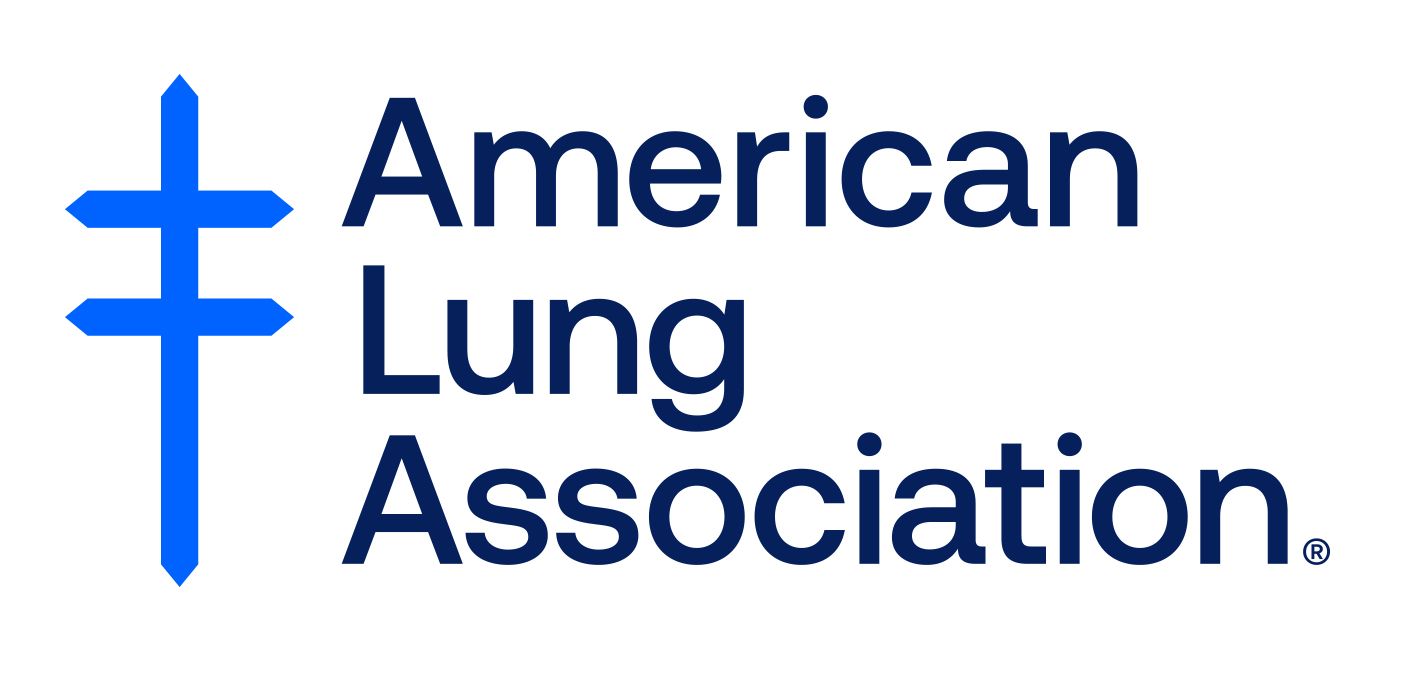
Kristie L. Kahl: Can you explain what Lung cancer screening actually consists of?
Dr. David Cooke: Lung cancer screening is a wonderful tool that is really saving Americans from lung cancer. As we know, lung cancer diagnosed in this country is mostly diagnosis at more advanced stages. We are now diagnosing patients who are at the highest risk for lung cancer at the earlier stages, with a better chance for cure.
So what lung cancer screening is, it's lung cancer screening with low dose CT scan. A CT scan is basically a really advanced level X ray machine, it looks like a doughnut, you lie on a table. And literally less than five minutes you roll through that doughnut, and it scans your chest and upper abdomen and with low dose radiation, ideally looking for things that are suggestive of lung cancer. And lung cancer screening is similar to screening and other cancer modalities such as mammography for breast cancer or colonoscopy for colon cancer. Now, lung cancer screening is reserved for those individuals who are defined as at the highest risk for developing lung cancer. So those are aged 55 to 80. Those who have what's called a 30-pack year smoking history. So the way you define a pack year is to take the number of years you have smoked, times a number of packs per day that you smoke. So if I smoke two packs a day for 15 years, that's 30 pack years, if I smoke one pack per day for 30 years, that's 30 pack years. And if you have quit smoking, then you've quit within a 15-year period. If you satisfied those four things, then you qualify for lung cancer screening.
Now, the reason why that lung cancer screening is a benefit as an essential health benefit in the United States is because there's been a large randomized clinical trial that was published in the New England Journal of Medicine, that's called the NLST, the National Lung Screening Trial. And what that trial did was paired individuals with low-dose CT scans with chest X ray. And when you compare low-dose CT scan to chest X ray, there was a 20% lung cancer specific reduction in death in those patients. And then there was what's called a stage shift. So, as I said earlier, the majority of patients are diagnosed at advanced stage 3 or 4 out of a 1 to 4 stage scale. And that trial, the majority of patients, about 75% were diagnosed at early stage disease with the highest chance for cure. And so that was a game changer in the lung cancer treatment paradigm. And that led the United States Preventive Services Task Force to give a grade B recommendation for lung cancer screening. And what that means is when the US Preventive Services Task Force gives a grade B or higher, then it's required by law that private insurance offers lung cancer screening as enhanced essential health benefit at no cost to patients. And that led the Centers for Medicare and Medicaid Services to recommend lung cancer screening and covered lung cancer screening for ages 55 to 77 for CMS. And so that's a that was a game changer.
Kristie L. Kahl: How much are these screening options actually utilized across the United States?
Dr. David Cooke: So unfortunately, not very much. So there are about 8 million Americans who are eligible for lung cancer screening and are considered at the highest risk for developing lung cancer. So as we mentioned before, ages 55 to 80, 30-pack years and if they had quit smoking within 15 years. Of those 8 million, if you look at the American Lung Association's 2019 State of Lung Cancer report, only about 4% of eligible Americans actually get screened. And you compare that to women who are eligible for mammography screening for breast cancer, about 70% get screened. And that varies from state to state. The highest level of screening is in Massachusetts. However, I practice in California, and only about 2% of eligible Californians get screened. And that's a terribly low number. And we do know that in Black and indigenous and other communities of color, the screening rates are lower, and so we must do better.
Kristie L. Kahl: So what are some reasons that may be contributing to the fact that people aren't getting screened?
Dr. David Cooke: So the American Lung Association published what was called a Lung Health Barometer. And what they found was that if you look at patients who might benefit from screening, only about 15% knew about lung cancer screening, and had these conversations with their doctor with their care, their primary care provider. So what we can do is educate our most educated people, which are our primary care providers, into having these conversations with their patients are at the highest risk for developing lung cancer. But I'm also a believer empowering the individual empowering patients themselves to do health care education. And so for patients to understand, are they at how are they at the highest risk for developing lung cancer? And could they benefit from lung cancer screening with low dose CT scan and a patient ask their doctor? Can I get a lung cancer screening exam, then that should increase our rates as well?
Kristie L. Kahl: How can we help raise more awareness so that individuals are aware that they should or should not be getting screened right now?
Dr. David Cooke: So there are different things are going on. One is our actual scientific edge, health care communities becoming more educated and more aware. In July of 2020, the United States Preventive Services Task Force changed their recommendations for lung cancer screening. So they dropped the age of eligibility from 55 to 50. And they dropped the pack-year eligibility from 30 to 20. And that's a recommendation by them. And the reason why they did that is because there's more data out there, one from a large European trial, that shows that the dose rate or pack year could be lower and age rate could be lower. And there is disparity data that shows that many African Americans develop lung cancer via a lower dose of tobacco use, and many women are light smokers as well. So they're at risk because they're smokers, although all you need are lungs to get lung cancer. But by lowering that dose rate, the pack years, you would include more women and more African Americans into lung cancer screening. So that shows you that our health care communities are in our scientists are becoming more educated. But why would say is for patients to go to really key trusted information websites to learn more, such as the website, American Lung Association, long.org, as well as the website of the National Cancer Institute cancer.gov, and really learn what's new, what's available to them in lung cancer screening, as well as lung cancer treatment, and also look to see where there is an American College of Radiology, certified lung cancer screening program that's near you.
Kristie L. Kahl: So what would you say is your biggest piece of advice for someone who thinks they should be getting screened?
Dr. David Cooke: Ask your doctor or your primary care provider, go to them and say, “Look, I am worried that I'm at risk for developing lung cancer, should I get screened?” And they will sit down with you and have a shared decision-making conversation and go through the criteria and see whether you are eligible for lung cancer screening. And even if you're not eligible for lung cancer screening, they can go over with you best practices to improve your lung health. And that could be smoking cessation. That could be looking at your local environment and looking into air quality in that environment. But just starting that conversation, is the key to improving your lung health.

